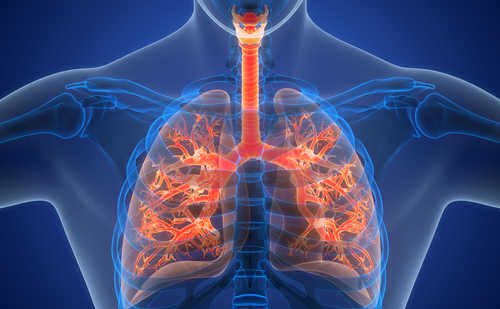Search Results
Showing Results for Chronic obstructive pulmonary disease

Explore expert perspectives from ATS 2025 with our exclusive interview series. Discover key advances in respiratory care, including updates on COPD, ILD, ventilation strategies, and emerging therapies. Stay informed with concise, clinically relevant insights tailored for healthcare professionals on touchRESPIRATORY.

In this Q&A, Professors David Price and David Halpin discuss their ATS 2025 abstract on improving COPD outcomes through a digital adherence support package. They explore the MAGNIFY trial's design, including how an EMR-driven algorithm identified high-risk patients and how a pharmacist-led intervention combined with a digital inhaler device significantly reduced treatment failure in a real-world primary care setting.

Ventilator-associated pneumonia (VAP) poses a serious threat in ICUs, often driven by biofilms on endotracheal tubes that resist antibiotics. In this Q&A, Professor Frank MP van Haren discusses a study showing that nebulized BromAc® effectively disrupts these biofilms and enhances antibiotic action, offering a promising strategy against persistent infections like Pseudomonas aeruginosa-related VAP.

Asthma affects nearly 300 million people worldwide.1 Despite a notable decline in age-standardized prevalence, mortality and disability-adjusted life years over the past three decades, the burden of asthma remains high in many countries including low-middle-income countries.2 Climate change is also predicted ...

As we observe World Lung Day, it is crucial to reflect on the escalating impact of respiratory diseases across the globe. Chronic respiratory diseases — including chronic obstructive pulmonary disease (COPD), asthma, lung cancer, pulmonary hypertension, obstructive sleep apnea, and others — continue to rank among the leading causes of morbidity and mortality worldwide. The World Health Organization’s latest data underscores the persistence of the global respiratory crisis:

The BETTER-B study, recently presented at ERS and published in The Lancet Respiratory Medicine, provided new insights into the management of severe breathlessness in patients with chronic respiratory diseases such as COPD and Interstitial Lung Disease (ILD). Severe breathlessness is a debilitating symptom that significantly impacts the quality of life for millions of people worldwide, yet there are currently no licensed medications to effectively address it outside of Australia. Given the clinical challenges and limited treatment options, clinicians often resort to off-label use of medications like mirtazapine, a widely prescribed antidepressant that appeared promising. Despite its initial promise, the study found that doses ranging from 15 to 45 mg of mirtazapine failed to provide significant relief compared to a placebo. Additionally, the findings highlighted potential adverse effects and increased healthcare costs associated with its use.

Welcome to the latest edition of touchREVIEWS in Respiratory & Pulmonary Diseases. As we continually strive to deliver cutting-edge research and insightful commentary, this issue is no exception, featuring a diverse array of articles that illuminate both emerging treatments and ...

Approximately half of all smokers will develop chronic obstructive pulmonary disease (COPD), with a disease progression over several years before the spirometric threshold for diagnosis is reached.1 There is, therefore, a clear benefit in identifying patients with COPD as early ...

The nasal airway serves as the primary entry point of air and oxygen into the body. It serves critical functions, such as providing a physical barrier against external irritants and pathogens and warming and humidifying incoming air.1 Consequently, disorders of ...

Paediatric sleep-disordered breathing Sleep-disordered breathing (SDB) is defined as the disruption of normal respiration and ventilation while asleep.1 SDB encompasses multiple sleep disturbances, ranging from mild snoring to obstructive sleep apnoea (OSA).1,2 OSA is characterized by episodic partial or complete ...

Interstitial lung diseases (ILDs) are a heterogeneous group of disorders characterized by inflammation and/or fibrosis.1 Pulmonary fibrosis develops due to repeated cycles of injury and impaired repair with fibroblast activation and migration with the resultant deposition of extracellular matrix ...

Acute exacerbations of chronic obstructive pulmonary disease (AECOPD) are the dominant cause of the worsening and high mortality of chronic obstructive pulmonary disease (COPD), and are associated with higher healthcare costs as part of COPD management. AECOPD is characterized by ...

Altitude can exacerbate chronic obstructive pulmonary disease (COPD symptoms) and has associated adverse health effects. We are joined by Dr Michael Furian (University of Zurich, Zurich, Switzerland) to explore the adverse health effects and significant influence on patient quality of ...

The topic of the carbon footprint of human activities is one frequently discussed worldwide. There have been conscious efforts across multiple fields, including healthcare, to reduce their carbon footprint. In Canada, 4.6% of greenhouse gases (GHG) are manufactured by the healthcare ...

The phase 3 BOREAS study (NCT03930732) investigated the efficacy and safety of dupilumab for the treatment of chronic obstructive pulmonary disease with type 2 inflammation. It was a pleasure to talk with Prof. Klaus F. Rabe (University of Kiel, Germany) around the ...

Dupilumab is an investigational monoclonal antibody that mitigates type 2 inflammation by blocking IL-4 and IL-13 receptors in patients with COPD. We were delighted to talk with Prof. Klaus F. Rabe (University of Kiel, Germany) around the unmet needs in the ...
Latest articles videos and clinical updates - straight to your inbox
Log into your Touch Account
Earn and track your CME credits on the go, save articles for later, and follow the latest congress coverage.
Register now for FREE Access
Register for free to hear about the latest expert-led education, peer-reviewed articles, conference highlights, and innovative CME activities.
Sign up with an Email
Or use a Social Account.
This Functionality is for
Members Only
Explore the latest in medical education and stay current in your field. Create a free account to track your learning.



